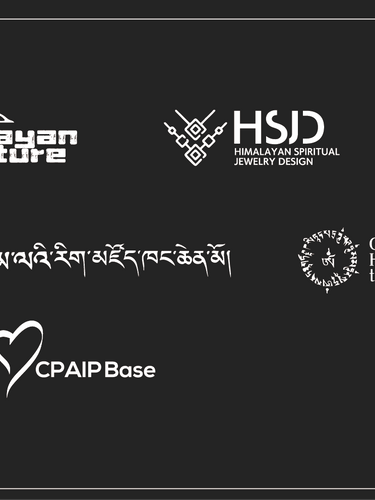
Life is a cacophony of chaos, a whirlwind of emotions, duties, and responsibilities that often leave us feeling adrift in a sea of turmoil. Amidst this chaos, the teachings of Buddhism stand as a beacon of hope, offering profound insights and practices to navigate these tumultuous waters and find a tranquil harbor within ourselves.
The Philosophy of Inner Peace
Buddhist teachings revolve around the concept of "Dukkha," which encompasses the inherent suffering or unsatisfactoriness of life. However, these teachings don't dwell on pessimism; rather, they offer a roadmap to transcend suffering. Central to this is the concept of "Nirvana," a state of ultimate liberation from suffering, achieved through understanding and embracing the impermanent nature of existence.
At the heart of this philosophy lies the concept of impermanence or "Anicca." Everything in life is subject to change - from the shifting tides of emotions to the transient nature of material possessions. Understanding this impermanence allows one to detach from the clinging attachment to things, experiences, or situations that contribute to suffering.
Another key aspect is the principle of "Anatta," which suggests the absence of a permanent, unchanging self. Buddhism challenges the notion of an enduring, independent self, instead proposing that the self is a dynamic interplay of ever-changing elements. This realization lessens the grip of ego-centric tendencies, leading to a more compassionate, interconnected view of the world.
Furthermore, the philosophy underscores the interconnectedness of all phenomena - "Pratitya-samutpada" or dependent origination. This concept highlights the interdependence of all existence, emphasizing that nothing exists in isolation. The understanding of interdependence fosters compassion and a sense of responsibility towards all beings and the environment.
Buddhism isn't a set of dogmas to be blindly followed; it's an invitation to investigate, question, and experience. The teachings provide tools - meditation, mindfulness, ethical living - to navigate life's complexities. Through meditation, individuals can cultivate a deeper understanding of the mind, observing its workings and gaining insight into the nature of suffering.
The Power of Mindfulness and Meditation
One of the core practices in Buddhism is mindfulness- a state of focused awareness on the present moment. By cultivating mindfulness through meditation, individuals can observe their thoughts and emotions without judgment, leading to a profound understanding of the self and the world around them. Through regular practice, one can attain a state of mental clarity and inner peace.
Buddhist Practices for Inner Peace: Compassion and Loving-Kindness
The teachings of Buddhism emphasize compassion and loving-kindness towards oneself and others. By cultivating these qualities, individuals can alleviate suffering not only within themselves but also in the world around them. Practicing compassion fosters a sense of interconnectedness, promoting harmony and peace.
Detachment and Letting Go
Detachment in Buddhism is rooted in the understanding of impermanence (Anicca) and the inherent unsatisfactoriness of clinging to transient phenomena. It invites individuals to embrace change, acknowledging that attachment to fleeting experiences, possessions, or relationships often leads to suffering. By recognizing the transient nature of all things, one cultivates an attitude of non-attachment that fosters inner peace and resilience.
Letting go, a vital component of detachment, involves relinquishing the emotional bonds and clinging tendencies that bind individuals to suffering. It entails releasing the grip on expectations, ego-driven desires, and the illusion of control. By surrendering the need for specific outcomes and accepting reality as it unfolds, individuals liberate themselves from the burdens of worry and anxiety.
Central to the practice of detachment is acknowledging the inevitability of change. Embracing impermanence doesn't imply resignation but rather an appreciation for the beauty and richness of the present moment. By acknowledging the transient nature of experiences, relationships, and possessions, individuals learn to cherish each moment without clinging to its passing existence.
Detachment doesn’t advocate aloofness or emotional detachment from life. Instead, it offers a profound sense of freedom - the freedom from the enslavement to desires, attachments, and the perpetual pursuit of satisfaction through external means. This freedom allows individuals to navigate life’s challenges with equanimity, responding to situations with clarity and grace rather than being driven by impulsive reactions rooted in attachment.
Incorporating the principles of detachment into daily life involves conscious effort and introspection. It encompasses acknowledging attachments, observing their effects, and gradually loosening their grip. It involves letting go of the need for control, embracing uncertainty, and finding peace in the fluidity of existence.
In essence, detachment and letting go within Buddhist teachings offer a roadmap to liberation - a liberation from the confines of attachment, leading to a profound sense of inner peace and freedom. It's a journey towards transcending the limitations of ego-driven desires, inviting individuals to embrace the present moment with an open heart and an unburdened mind.
The Role of Ethical Conduct
Buddhism underscores the importance of ethical conduct (Sila), guiding individuals to lead a virtuous life. By adhering to ethical principles and cultivating wholesome intentions, one fosters a sense of harmony within oneself and contributes positively to the collective well-being.
Meditation Rituals
Regular meditation rituals form the cornerstone of applying Buddhist wisdom. Allocating time for meditation amidst life's hustle allows individuals to nurture mental calmness, clarity, and resilience. Central to meditation is the cultivation of stillness. Amidst the hustle and bustle of daily life, finding moments of quietude becomes paramount. It's not solely about silencing external noises but quieting the incessant chatter of the mind. Through various meditation techniques like mindfulness, concentration, and loving-kindness, individuals learn to anchor themselves in the present moment, gradually easing the restless nature of the mind.
Oriental Aesthetics: Fostering Appreciation for Buddhist Art
At Oriental Aesthetics, we recognize the profound impact of Buddhist teachings on art and culture. We provide meticulous services tailored for oriental artists, collectors, and enthusiasts who appreciate classical oriental art. Our mission is to foster a deeper understanding and appreciation for the rich oriental heritage, guiding enthusiasts in acquiring and preserving these timeless treasures.























